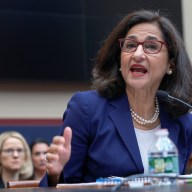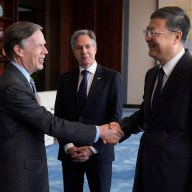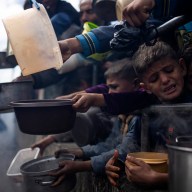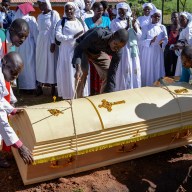By Andrew Osborn and Polina Nikolskaya
MOSCOW (Reuters) – Hundreds of Russian celebrities, sportspeople and politicians nominated President Vladimir Putin for re-election on Tuesday, hours after the Kremlin said it wanted opposition leader Alexei Navalny investigated for calling for a boycott of the vote.
Navalny called for the boycott of the March 18 election on Monday after Russia’s central election commission ruled he was not eligible to run for president due to a suspended prison sentence hanging over him.
The 41-year-old lawyer, who says he’s being excluded on false grounds because the Kremlin is running scared, said he would use his campaign headquarters across the country to call the election’s legitimacy into question and organize protests.
The Kremlin, which points to polls that show Putin is the runaway favorite with Navalny trailing far behind, on Tuesday set the scene for possible police action against Navalny and his supporters whose protests have been broken up before.
“The calls for a boycott will require scrupulous study, to see whether or not they comply with the law,” Kremlin spokesman Dmitry Peskov told reporters on a conference call.
Declining to comment on the election commission’s decision to bar Navalny, Peskov shrugged off allegations that the presidential poll would be a farce without the opposition leader who has made a name for himself by leveraging social media and conducting corruption investigations into senior officials.
“The fact that one of the would-be candidates is not taking part has no bearing on the election’s legitimacy,” said Peskov.
Hours later, Putin, 65, was feted by his supporters, almost 700 of whom pledged to back him for re-election — above the minimum 500 required to initiate a presidential bid.
Putin’s own schedule was too busy for him to attend the Moscow nomination event, the Kremlin said, though he is expected to personally submit the necessary paperwork to the central election commission in the coming days.
FATHER OF THE NATION
The former KGB officer is running as an independent, a move seen as a way of strengthening his image as a “father of the nation” rather than as a party political figure.
The ruling United Russia party and the Just Russia party have both said they will support him.
“I have worked under the leadership of the president for quite a long time so I know that everything will be alright for us with President Putin,” Sergei Kislyak, Russia’s former ambassador to the United States, now a senator, told Reuters at Tuesday’s nomination meeting.
The commander of a nuclear submarine, Sergei Novokhatsky, told the same meeting that Putin had helped revive the Russian Navy, which he described as mired in apathy at the end of the 1990s with many of its ships stuck in ports.
Now, he said, wages were up and Russian ships served throughout the world.
“The course the motherland is on is the right one,” Novokhatsky told the meeting.
If, as expected, he wins re-election, Putin, who has dominated Russia’s political landscape for the last 17 years, will be eligible to serve another six years until 2024, when he turns 72.
Allies laud him for restoring national pride and expanding Moscow’s global clout with interventions in Syria and Ukraine.
But Navalny, the opposition leader, says Putin’s support is exaggerated and artificially maintained by a biased state media and an unfair system which excludes genuine opponents.
Navalny, who says he could defeat Putin in a fair election, has been jailed three times this year and charged with breaking the law for organizing public meetings and rallies designed to bolster his presidential campaign.
He has said millions of voters will be disenfranchised unless the authorities relent and allow him to run.
The European Union has also questioned the decision to bar Navalny.
“(It) casts a serious doubt on political pluralism in Russia and the prospect of democratic elections next year,” the EU’s External Action Service said in a statement on Tuesday.
“Politically motivated charges should not be used against political participation,” it said, urging Moscow to ensure a “level playing field” for all Russian elections.
(Additional reporting by Denis Pinchuk in Moscow and Robin Emmott in Brussels; Writing by Andrew Osborn; Editing by Peter Graff)


















